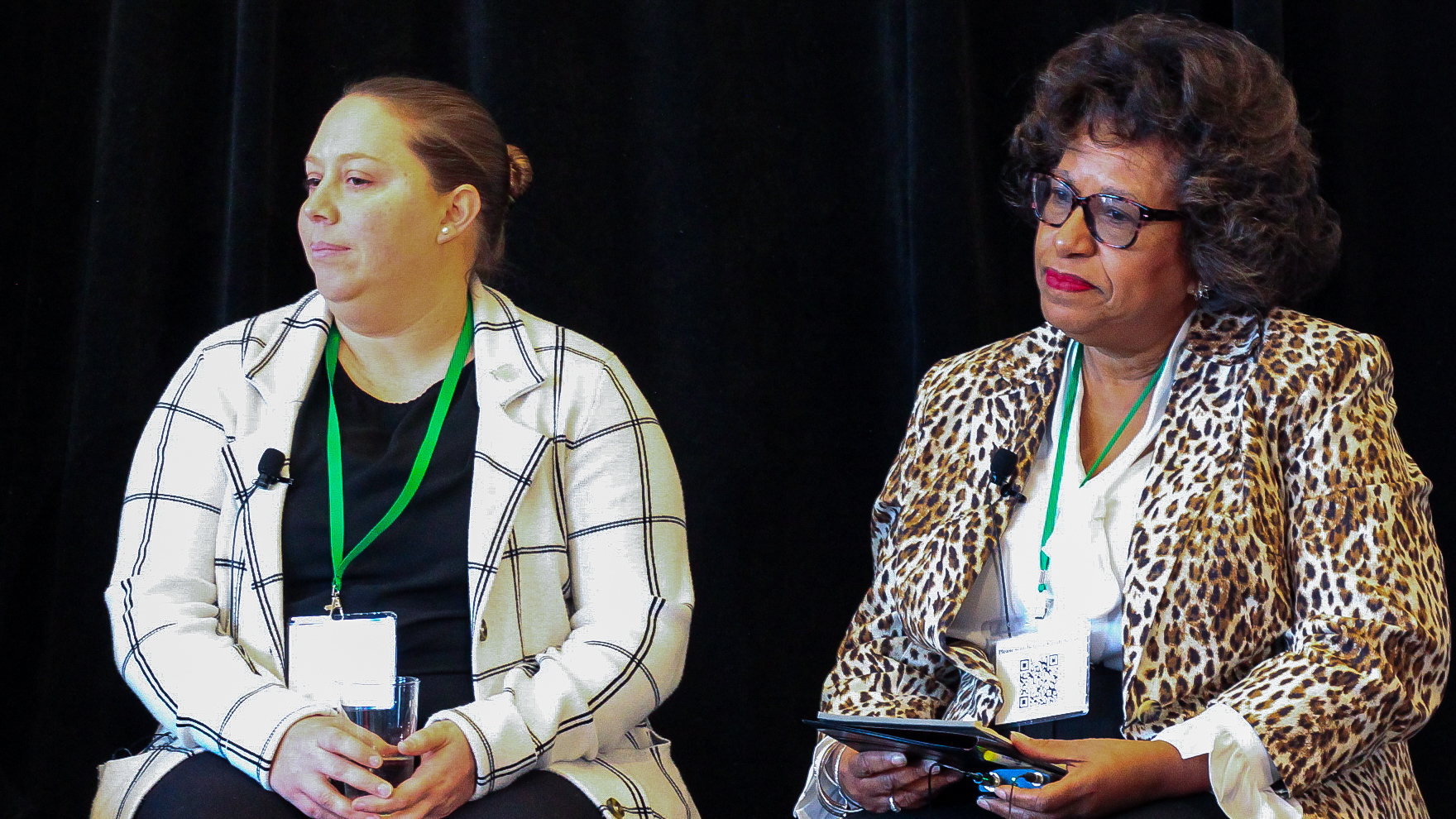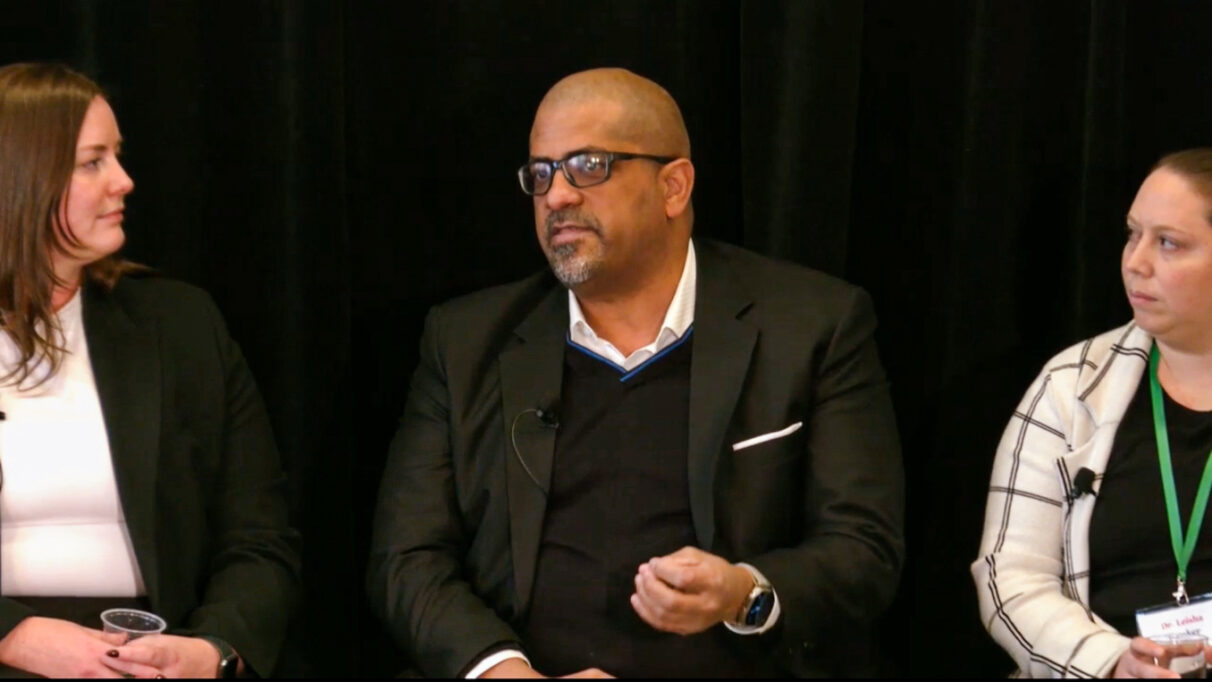public private care
Data the key to solve public-private dilemma in health care, forum hears
The province needs to collect health-care data and monitor it, says health advocate

caption
Dr. Leisha Hawker of the North End Community Centre and Sharon Davis-Murdoch of the Health Association of African Canadians join a panel discussing the private and public sectors of health care.Doctors and community health members told an audience at a forum to discuss health-care delivery Thursday that more data is needed to properly understand the issues within our system.
In response to a question from an audience member who asked how to ensure that new health initiatives are properly measured for their impact on equality, Sharon Davis-Murdoch, head of the Health Association of African Canadians, was blunt.
“I don’t know,” said Davis-Murdoch. “In fact, that’s the problem.”
The Globe and Mail held an event Thursday for physicians, nurses, and other health-care workers to discuss issues in the Canadian and Nova Scotia health-care system. There were physicians from all over Nova Scotia and from different fields who came to listen and ask questions to experts. Related stories
Dr. Leisha Hawker of the North End Community Health Centre and Sharon Davis-Murdoch were on a panel discussing solutions to improve access to care.

caption
An audience member asks a question of a panel made up of Dr. Collin Audain, Dr. Leisha Hawker, Sharon Davis-Murdoch, and Abbey Sanford.The general theme of the evening was public vs. private health-care solutions and some of the ways we use both in our system.
According to Davis-Murdoch, the province needs to collect data and monitor it so that anytime we need to make changes it can be looked at.
“Data and research specific to Black Canadians is absent,” said Davis-Murdoch. “While we are beginning to change that, we are nowhere near yet.”
In the United States, the Association of American Medical Colleges have used data to show the need for more Black physicians in Black communities. The association said that every 10 per cent increase in the representation of Black primary care physicians was associated with 30.6 days of greater life expectancy among Black people in the country.
Dr. Leisha Hawker gave another example of how data can be used.
In September, she will be spearheading an organization called Access Now Nova Scotia. This organization advocates for universal access to contraception. According to Hawker, there is strong data and evidence that “every one dollar spent on universal contraceptives saves an average of $90 in public expenditure, so it is cost-effective and the right thing to do.”
This event put on by the Globe and Mail in association with the Canadian Medical Association is one of a series of events going on across Canada. The goal is to listen to solutions and opinions from physicians and other experts across the country and put these solutions to practice.
Other speakers on the panel included Dr. Collin Audain, president of Doctors Nova Scotia, and Abbey Sanford, health system partnerships at Maple.

caption
Dr. Collin Audain, at a Globe and Mail health forum in Halifax on Thursday, said he supports seeking not-for-profit solutions to health-care issues ahead of for-profit solutions.Hawker said the data on contraception supports public, not-for-profit, solutions to our health-care issues being economically and socially viable.
“If you look at the long-term care home system during Covid, you could see very easily that for-profit and privately funded long-term care homes had much worse outcomes,” said Dr. Hawker.
“We know that through the data we have so we need to track more data, especially with an eye on equity.”
Another audience member asked if there is a preference to use not-for-profit solutions to health-care issues before looking in to the for-profit sector.
Unequivocally yes, I would absolutely like to have publicly funded solutions and to invest in the publicly funded system,” said Davis-Murdoch. “We need to see improved health care for all people in Canada but particularly the most marginalized.”
Dr. Hawker also gave an unequivocal yes and added, “It should be public and if anything, we should be expanding it.”
Dr. Audain was also quick to say yes, while Sanford declined to say yes or no.
Thursday’s event marked the last of a series of four events that included stops in Toronto, Montreal and Vancouver. Policy makers and health workers say they will look to implement some of the findings and discussions in the coming months and years.
About the author
Cam Kinley
Cam is an aspiring video journalist from Toronto, ON with a special interest in sports media and broadcasting. He currently works for the Canadian...
